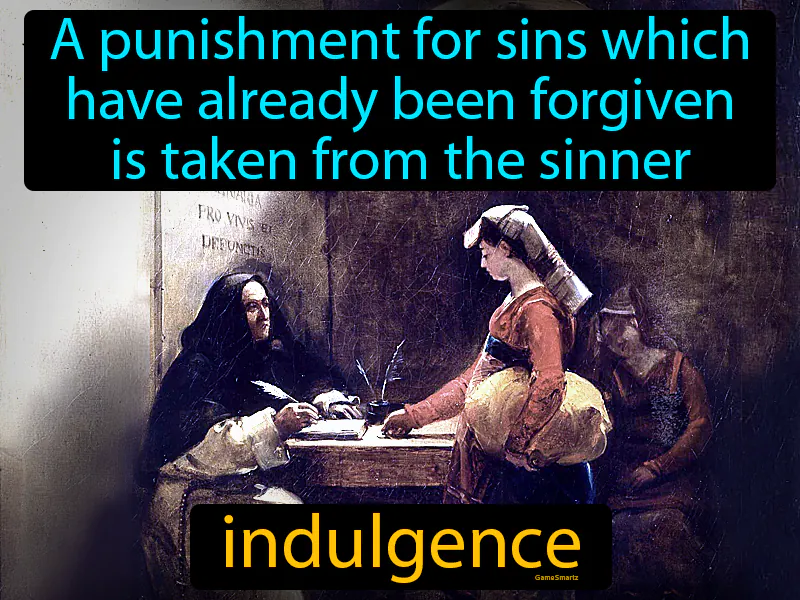Indulgence
Indulgence:
During the Renaissance and Reformation (1300-1650), indulgences were a way for the Catholic Church to offer believers a reduction of punishment for sins, often in exchange for money or good deeds. This practice became controversial because many felt it exploited people's faith and was more about church income than genuine repentance. Martin Luther famously criticized indulgences, which helped spark the Protestant Reformation, a major religious movement that challenged the Catholic Church's practices and authority. Today, the concept of indulgence can relate to how people might seek shortcuts or quick fixes, like paying for a service to remove a penalty without addressing the root issue. For example, someone might pay a fine for speeding instead of committing to drive more safely, showing how the idea of trying to "buy" one's way out of consequences still resonates.

Practice Version

Indulgence: A temporal punishment for sins which have already been forgiven is taken from the sinner. Indulgence. In history, an indulgence was a way for people to reduce punishment for their sins through actions or payments to the Church.
